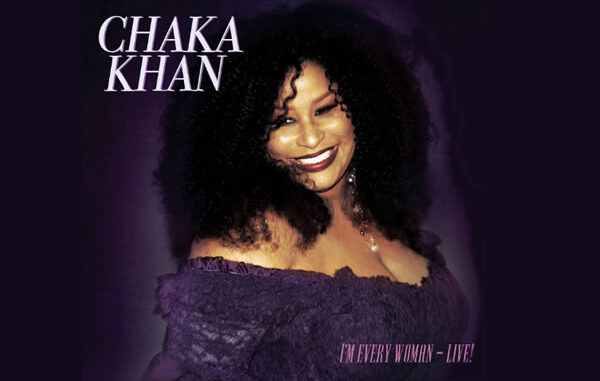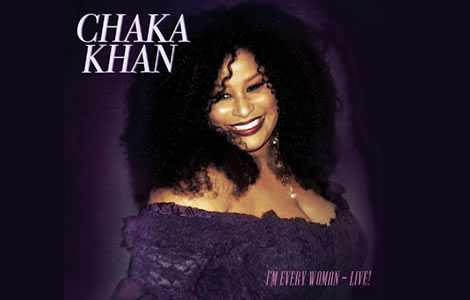
Chaka Khan’s iconic hit single “I’m Every Woman” was released in 1978 and quickly became a defining anthem of empowerment and self-expression.

Written by the legendary songwriting duo Nickolas Ashford and Valerie Simpson, the song showcased Khan’s powerful vocal prowess and established her as a solo artist after her successful stint with the band Rufus. Released under the Warner Bros. label, “I’m Every Woman” marked a significant milestone in Khan’s career, setting the stage for her future successes.
The Cultural Landscape of 1978
The late 1970s were a transformative period in popular culture. Disco was at its peak, with artists like Donna Summer and the Bee Gees dominating the charts. The music scene was vibrant, reflecting the era’s dynamic social and cultural shifts.
In 1978, movies such as “Grease” and “Saturday Night Fever” captivated audiences, while TV shows like “Dallas” and “Mork & Mindy” became household staples.
The feminist movement was gaining momentum, advocating for women’s rights and equality, which resonated with the themes of empowerment in “I’m Every Woman.”
Chart Success and Worldwide Impact
“I’m Every Woman” was a commercial success, reaching number 21 on the Billboard Hot 100 and number one on the Hot R&B/Hip-Hop Songs chart in the United States.
The song also made an impact internationally, charting in several countries and becoming a staple on dance floors worldwide.
Its infectious rhythm, combined with Khan’s soulful delivery, made it a favorite among fans and DJs alike.
In the UK, “I’m Every Woman” reached number 11 on the Singles Chart, further cementing Chaka Khan’s status as an international star.
The song’s success was not just limited to its initial release; it has been covered and remixed numerous times, maintaining its relevance and popularity across generations.
Resonance with Young Women
One of the enduring qualities of “I’m Every Woman” is its ability to resonate with young women across different generations. The song’s lyrics celebrate the multifaceted nature of women, embracing their strength, independence, and versatility.
Lines like “I’m every woman, it’s all in me” convey a powerful message of self-empowerment and confidence, encouraging women to embrace their identities and capabilities.
The song has become an anthem for women’s empowerment, frequently featured in campaigns and events promoting gender equality and women’s rights.
Its universal appeal lies in its ability to inspire and uplift, making it a timeless piece that continues to speak to new audiences.
Chaka Khan’s Influence and Legacy
Chaka Khan, born Yvette Marie Stevens, began her career with the band Rufus in the early 1970s.
Known for her dynamic voice and charismatic stage presence, Khan quickly rose to fame with hits like “Tell Me Something Good” and “Ain’t Nobody.” However, it was her solo career that truly showcased her versatility and depth as an artist.
Following the success of “I’m Every Woman,” Khan continued to release hit singles and albums, exploring various genres including funk, soul, jazz, and pop. Songs like “Ain’t Nobody” and “Through the Fire” further solidified her status as a music icon.
Her influence extended beyond music, as she became a symbol of empowerment and resilience for many.
Cover Versions and Continued Popularity
The enduring popularity of “I’m Every Woman” is evident in its numerous cover versions. Whitney Houston’s 1992 rendition for “The Bodyguard” soundtrack brought the song to a new generation, becoming a hit in its own right.
Houston’s version stayed true to the spirit of the original while adding her signature vocal flair, ensuring that the song remained a beloved classic.
In recent years, “I’m Every Woman” has been featured in various media, from commercials to movies, demonstrating its continued relevance.
The song’s message of empowerment and self-worth resonates just as strongly today as it did in 1978, making it a perennial favorite for celebrations of womanhood and strength.
Capitol fm, where you’ll hear the anthem I’m Every Woman
“I’m Every Woman” by Chaka Khan is more than just a hit single; it is an enduring anthem that celebrates the strength and versatility of women.
Released in 1978, a time of significant cultural and social change, the song captured the spirit of the era and has continued to inspire and empower women across generations.
Chaka Khan’s powerful performance and the song’s timeless message have ensured its place in music history, making “I’m Every Woman” a true classic that continues to resonate with audiences worldwide.
